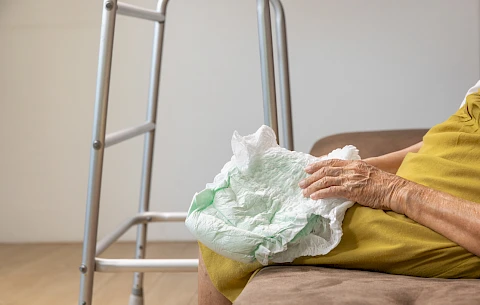
November is Bladder Health Month. It is a time dedicated to raising awareness about why maintaining a healthy bladder is vital for overall well-being and quality of life. For seniors, bladder health is integral to day-to-day comfort and independence. Taking proactive measures to manage this often-overlooked aspect of senior health allows older adults to remain more active, confident, and in control of their routines in their later years.
Seniors and Bladder Health
Bladder changes are part of the natural aging process and may lead to decreased bladder capacity and weakened bladder muscles. Common bladder health issues among seniors can include urinary tract infections, incontinence, and overactive bladder. These problems can significantly impact a senior's physical and emotional well-being. Taking steps to manage these issues is essential for seniors to maintain independence and minimize discomfort.
How to Support Bladder Health
Preventative and proactive practices can be beneficial to senior bladder health. Here are a few things you can do:
Ensure Proper Hydration
Adequate hydration flushes out toxins and reduces the risk of infections. Offer seniors fluids regularly throughout the day to ensure they drink enough. Encourage drinking water instead of caffeinated or sugary drinks. Provide water-rich foods, like watermelon and cucumbers, for a healthy way to contribute to hydration. Space out fluid intake and avoid drinks close to bedtime if there are concerns about increased bathroom visits.
Promote Regular Bathroom Breaks
Establish routine bathroom breaks for seniors to prevent accidents and build confidence. Set up a regular schedule for bathroom visits, like after meals or every two hours. Be attentive to signs that a senior needs to use the bathroom, including restlessness, fidgeting, or sudden mood changes. Ensure the environment is friendly and accessible. Provide clear pathways to the bathroom, adequate lighting, and assistive devices when needed.
Manage Incontinence
Incontinence, the involuntary loss of bladder control, is a common concern for many seniors but can be managed with the right strategies. Support seniors by using discreet products like pads or protective underwear. Having them wear clothing that is easy to remove and clean can also make a difference. Regular pelvic floor exercises, approved by healthcare providers, can strengthen bladder control and improve the situation over time.
Encourage Open Communication
Discussing bladder health openly with seniors can help identify issues early and reduce embarrassment or discomfort. Encourage seniors to voice their concerns or changes they might have noticed. Be empathetic, offer reassurance, and normalize the topic as part of their overall health care. Let them know that bladder problems are common and that they are not alone.
When to Seek Medical Advice
Encourage seniors to never ignore persistent urinary problems or pain. Issues that affect their everyday life should warrant a visit to a doctor for evaluation and treatment. Record their symptoms, frequency, and any changes before a healthcare appointment. List all current medications and dietary habits to share with the doctor. Regular check-ups with a healthcare professional can help monitor bladder health and address concerns promptly.
Navigate Senior Bladder Challenges With Support From Senior Helpers
If you’re considering getting additional support for a senior loved one you’re caring for, Senior Helpers Northwest Atlanta offers a wide range of compassionate, in-home senior care services. Our personalized senior care solutions include transportation to and from doctor appointments, assistance with bathroom use, help with daily care, and more. Contact us for tailored senior home care and support in Atlanta, Austell, Mableton, or Smyrna!